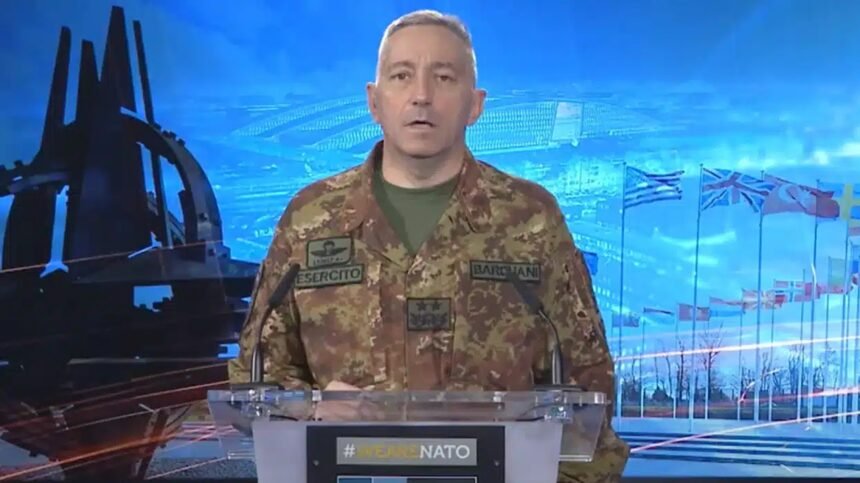KFOR Commander, Major General Enrico Barduani, in his final briefing to the NATO Military Committee and the North Atlantic Council, emphasized that the path to sustainable security in Kosovo is political rather than military.
He noted that “the situation in Kosovo is stable, but remains subject to sudden escalation risks due to a number of unresolved issues.”
Despite challenges on the ground, Barduani stated that “KFOR has stayed on the right path,” helping to “maintain stability and mitigate situations that could have led to incidents or bursts of instability” while contributing “to a security framework that supports ongoing and crucial diplomatic efforts.”
Reiterating NATO and KFOR support for the EU-facilitated dialogue between Kosovo and Serbia, he emphasized:
“KFOR has demonstrated – once again – that it is ready and capable of playing its role and adapting its posture as needed. To move forward, it is important that Belgrade and Pristina implement existing agreements. Both sides must show flexibility to make the necessary compromises.”
Barduani also highlighted the strengthening of the mission, including the temporary deployment of reserve forces, and the deepening of cooperation with the international community, Kosovo security organizations, and the Serbian Armed Forces.
“KFOR continues to execute its mandate – based on UN Security Council Resolution 1244 (1999) – to contribute to a safe environment for all people and communities in Kosovo and ensure freedom of movement at all times, impartially. KFOR operates in close coordination with the Kosovo Police and the European Union Rule of Law Mission (EULEX) in their respective roles as security responders,” the statement reads.







